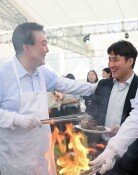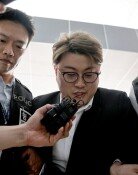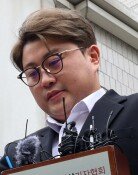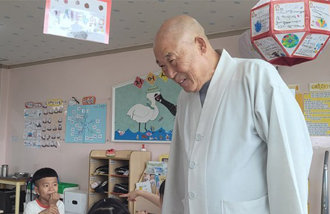Foreign Medias Responses to Inauguration of Pres. Lee
Foreign Medias Responses to Inauguration of Pres. Lee
Posted February. 26, 2008 03:21,
The worlds major media outlets reported the inauguration of President Lee Myung-bak yesterday, saying, South Koreas first CEO-turned president promised to spur the nations economic growth in his inauguration speech. They focused on the fact that a conservative government took to the power again after ten years of left-leaning reign and showed their expectations that South Korea would take more pragmatic approach in its diplomacy and contribute to denuclearizing the Korean Peninsula.
In its news from Seoul, the Associated Press reported, Lee told some 60,000 people who gathered to celebrate his inauguration that the nations most urgent challenge is to revive the economy. It also explained that Lee Myung-bak is to become the first South Korean president to win a majority vote since 1987 when the direct presidential election was restored.
Frances Agence France-Presse reported that South Koreans welcomed the inauguration of Lee Myung-bak who promised to open up a new era of prosperity. Reuters also said, The new president promised to invigorate the economy while overcoming fruitless conflicts over ideology and focusing on pragmatism.
Some foreign media even described the new presidents so-called 747 pledge, which promises that he will help the nation to grow by seven percent a year, reach $40,000 of per capita income in ten years and become one of the worlds seven largest economies.
American media including the Washington Times and Los Angeles Times reported that Lee promised to adopt pragmatic policies in South Korea suffering from severe polarization. CNN relayed Lee Myung-baks inauguration ceremony and reported that the new president promised to give a higher priority to restoring the economy under his leadership.
Japanese media aired the inauguration ceremony and speech in real time via their websites. They placed an importance on the fact that the newly inaugurated president and Japanese Prime Minister Yasuo Fukuda held a summit talk after the inauguration ceremony.
Asahi Shimbun reported that Lee Myung-bak stressed that he would put an emphasis not only on South Koreas relations with the U.S. but also on its relations with Asian nations including Japan. Japans state-run NHK reported that his inauguration ceremony was attended by Japanese Prime Minister Yasuo Fukuda and U.S. Secretary of State Condoleezza Rice.
Kyodo News paid much attention to the newly inaugurated presidents speech about diplomatic policy, saying, He first talked about the U.S. and his second choice was Japan. They were followed by China and Russia.
Chinas state-run television network CCTV dispatched its reporters to the National Assembly building in Yeouido to relay the inauguration ceremony. State-owned Xinhua also reported that Lees presidential tenure officially began as of midnight Monday and talked about a ceremony of striking the Bosingak Bell in central Seoul.
Russian news agency Itar-Tass announced that Russian Prime Minister Viktor Zubkov attended the inauguration ceremony and Lee would employ new policies to reform the market and education.
The BBC of the U.K. said that Lee worked as a businessman and the mayor of Seoul, and that he even earned the nickname the bulldozer. The Press Association reported that the inauguration of a conservative president heralded an end to the ten-year-old rule of progressives who have been criticized for worsening the economy and aggravating the U.S.-South Korea relations.
Foreign media in particular paid a sharp attention to the fact that Lee talked about South Koreas relations with the U.S. and North Korea.
The AP predicted that South Korea would give up its so-called sunshine policy of engaging North Korea, saying, Lee urged North Korea to open up its market and make efforts to deal with nuclear issues.
The AFP also predicted, While dropping lopsided sunshine policy, Lee is expected to combine two different approaches: support for North Korea and efforts to eradicate nuclear programs on the peninsula. It added that South Koreas new government is set to strengthen its relations with its decades-old ally U.S. and improve its diplomatic ties with China, Japan and Russia.
Asahi Shimbun analyzed, Unlike the Roh Moo-hyun government, the Lee Myung-bak government is likely to stress transparency in providing financial support to North Korea. It also added that Lee said he would deal with human rights issues in North Korea and South Koreans abducted by North Korea more proactively. Yomiuri Shimbun reported, President Lee hinted at providing financial support to the North in return for a progress in the nuclear issue.
The Washington Times reported, Lee, friendly to the U.S., promised to improve South Koreas relations with Washington. Xinhua also predicted that the new government would give a higher priority to pragmatic diplomacy.
surreal@donga.com







